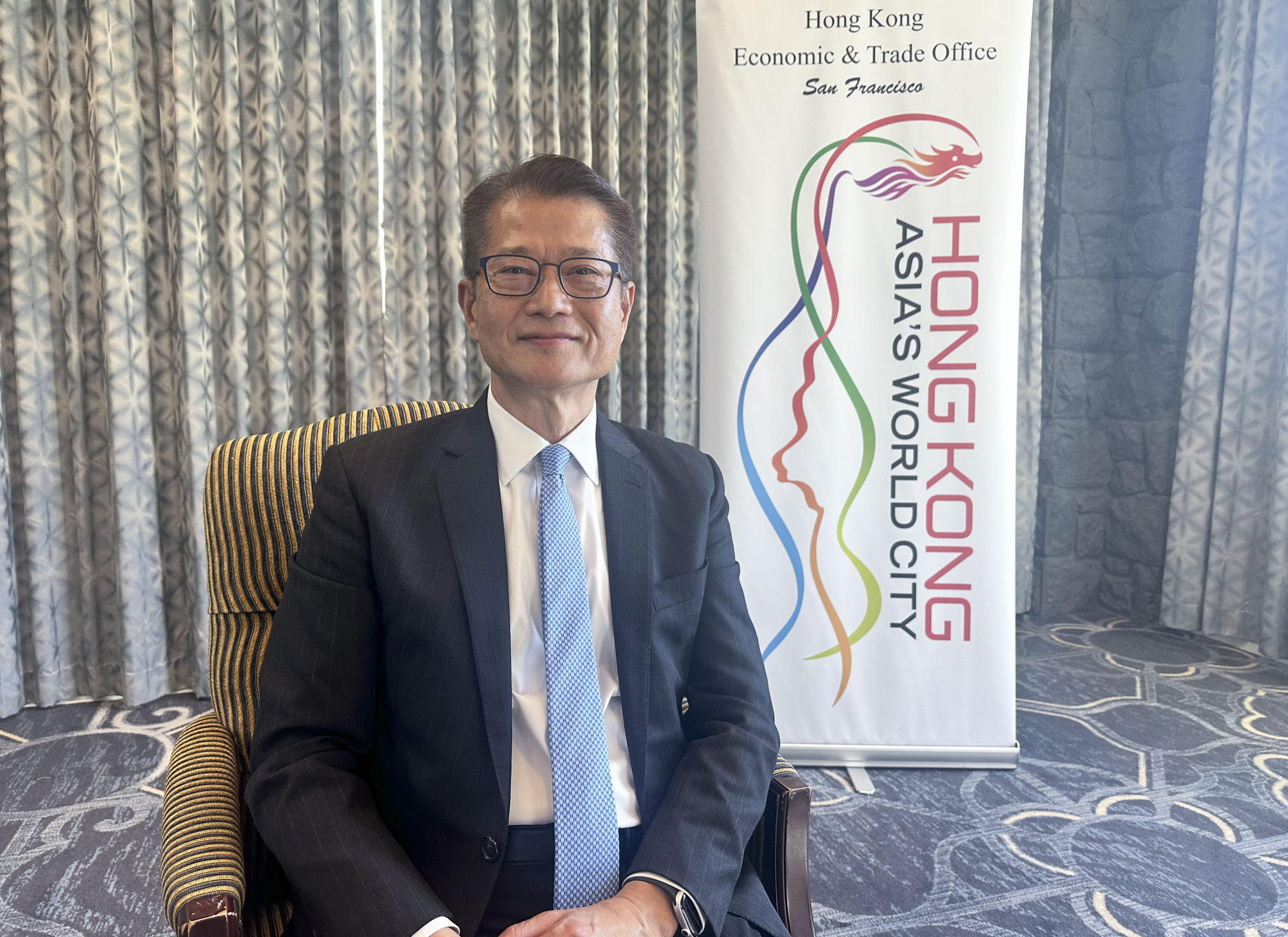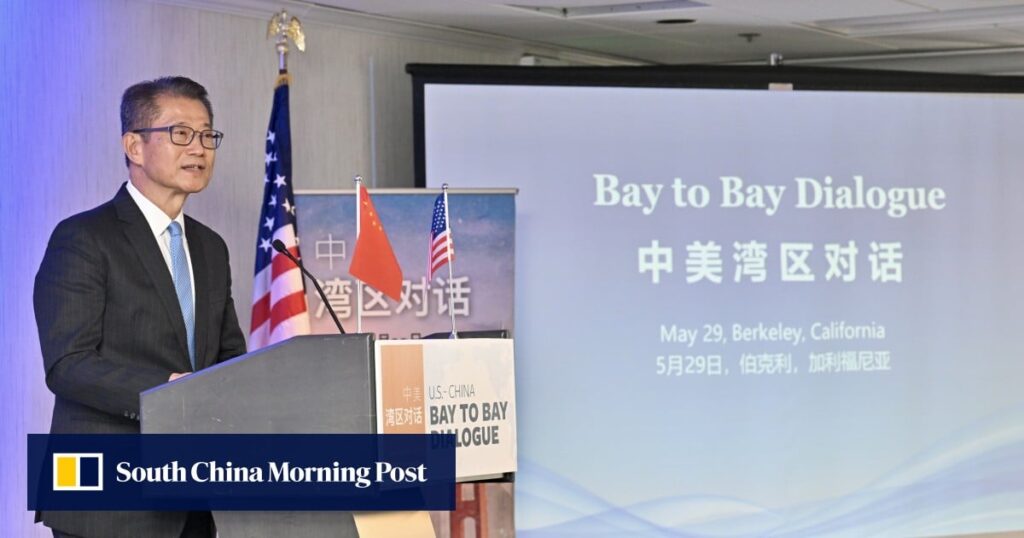But when asked whether the US businessmen and politicians he met expressed any concerns, Chan said “no one was concerned about national security” and that their focus was on “business-related issues”.
“In fact, the concerns and concerns of the business community here are Hong Kong's stability, the overall business environment, the impact of high interest rates on Hong Kong, and the performance of the stock market and property market,” he said.

The US updated its advisory in April, warning Americans to exercise greater caution due to the “arbitrary implementation” of two national security laws.
U.S. senators and Hong Kong activists living in the U.S. have called for legislation to close Hong Kong trade offices in the United States, including in San Francisco.
Chan said he was aware of the negative opinions circulating, so his lobbying efforts were focused on explaining the “one country, two systems” governing principle and highlighting the vitality of Hong Kong's banking system.
“The facts and figures speak for themselves,” he said, citing as an example how total deposits in the banking system grew 5.1 percent last year, compared with a 1.7 percent increase in 2022.
“After such a frank exchange of views, it can be said that mutual understanding has deepened,” he added.
In San Francisco, Chan attended a luncheon hosted by a business association that brought together about 100 representatives from American companies and organizations.
He visited the office of an innovation platform that supports startups around the world, including Hong Kong, and two technology companies in Silicon Valley.
In Berkeley, he participated in two high-level events: the Greater Bay Area-San Francisco Bay Area Synergy Dialogue and the U.S.-China Climate Change Conference.
California Governor Gavin Newsom and US environmental officials were at the conference, but there is no record of Chan meeting with them or major US technology companies between the meetings.
The Hong Kong group was joined by delegations from Macau and Guangdong province, led by Governor Wang Weizhong, to form the first joint U.S. delegation to promote the Guangdong-Hong Kong-Macao Greater Bay Area.
Chan said the joint effort has proven effective in promoting the “value proposition” of Hong Kong's inclusion in the Bay Area plan, which also includes Macau and nine cities in Guangdong province.
He noted that the Guangdong-Hong Kong-Macao Greater Bay Area and the San Francisco Bay Area have common strengths in technological advancement and entrepreneurship, and highlighted Hong Kong's important role in the cross-border innovation ecosystem with mainland China.
He noted that the Bay Area has developed everything from start-ups and venture capital funds to private equity funds, and said “Hong Kong can provide the specialized and financial services that American companies need.”
The United States was Hong Kong's eighth-largest destination for overseas investment in 2022, but the number of US companies operating in Hong Kong fell for the fourth consecutive year to 1,258 in 2022, according to official data.
The Hong Kong delegation included representatives from other policy bureaus, the Hong Kong Monetary Authority, the Hong Kong Exchanges and Clearing, the Hong Kong Science and Technology Parks Corporation, Cyberport and two universities.


